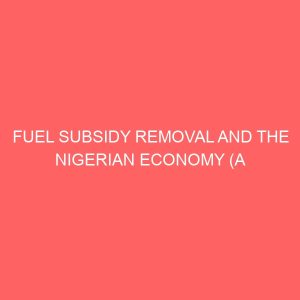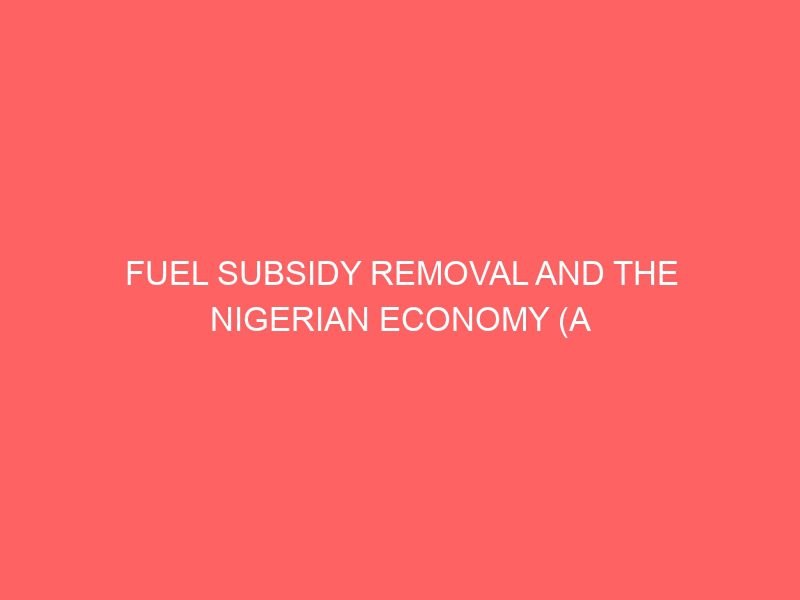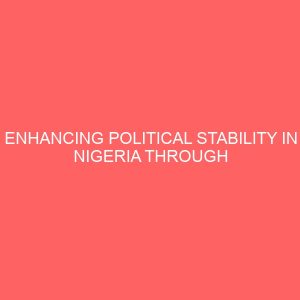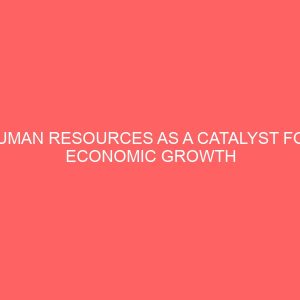Description
Abstract
This project looks at Fuel subsidy removal and the Nigerian economy with a case study of Abakiliki local government area, Ebonyi state. When the researcher chose this topic she was inspired on how Nigerians reacted towards the fuel subsidy removal, the strikes, violent demonstrations, high cost of fuel and transportation etc, it was these problems that made the researcher carry out this work. To do this, the researcher developed three major questions and other sub/minor questions aimed at prying into fuel subsidy removal and the Nigerian economy. These questions were administered in the form of a questionnaire to 399 respondents who were selected as a sample of the population. Apart from the primary data collected through questionnaire, secondary data were also collected. In organizing and presenting data collected, tables and percentages were used. Data analysis and interpretation revealed the level of impact felt in the sectors of the economy. A high level of impact was felt in health, transportation, education and power sector, a low impact was felt in agriculture, infrastructure, and basic amenities, majority of the respondents had no idea of the achieved impact in communicating and no impact was felt at all in tourism. It was therefore recommended that government should pay adequate attention to these sectors of the economy, this should also be supplemented by providing social amenities and infrastructures in the country. If the sectors of the economy are in a very good shape, it will not only go along way in sustaining and reviving other sectors of the economy, it wil also help to hasten growth and development in Nigeria.








Reviews
There are no reviews yet.